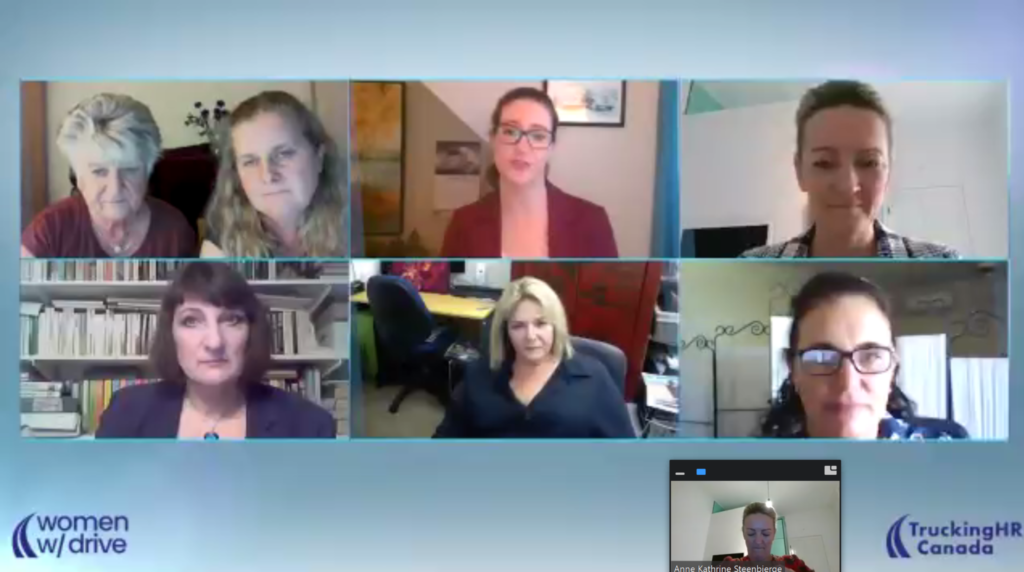Covid-19 lockdowns affected truckers around the world
Canada’s truck drivers were not the only ones to face the challenges of closed washrooms and changing business practices during Covid-19 lockdowns.
Trucking representatives from around the world shared similar experiences during Trucking HR Canada’s annual Women with Drive symposium, held online this year because of that very pandemic.

But there were also signs that truck drivers have been better recognized for the roles they play.
Queen Margrethe II of Denmark made a special mention about the role of truck drivers during one address, said Anne Kathrine Steenbjerge, CEO of Ancotrans/Ander Nielsen in that country. “That was huge for all of us.
“Many people have been thinking more about the big value that we add to society, and the value streams, and the growth and mobility of goods.”
Ruth Waring, director of compliance at the U.K.-based Acumen Logistics Group, noted that a surge in e-commerce activities have also given more people a chance to interact directly with truck drivers. An example came in the form of her fleet’s car deliveries.
This introduced a need for more training to ensure drivers had the required customer-service skills.
Covid-19 barriers
There has been no denying the barriers to overcome, however.
Heather Jones, managing director and head trainer at Pilbara Heavy Haulage Girls, referred to business that was suddenly put on hold last spring as Australia’s borders were locked down.
“We could only travel in a very, very small area for quite some time,” she said. The rules that emerged were also quick to change. Covid-19 tests allowed in one state were suddenly not recognized by the next jurisdiction.
There was also a shortage of truck tires to be addressed, as shipments from China were curtailed. Finding a single set of steer tires might mean matching one tire sourced in Queensland to another tire found in South Wales. Existing tires had to be pushed to their limits.
“They were still legal but not to the tread depth that we would like to have.”
Physical interactions have been limited, too. Jones referred to refueling activities that were temporarily limited to unmanned fuel islands.
Meryn Morrison, a safety consultant with New Zealand’s Safety Interchange, described the familiar challenges of closed washrooms and showers at the height of the pandemic. Some of the hotel rooms traditionally available to truck drivers were rented to homeless people.
She also had to introduce protocols for truck drivers to follow when interacting with stevedores and ship crews at ports. Pictures of paperwork were suddenly being exchanged rather than physical documents.
But Waring referred to one trend that could help to attract more women to the trucking industry – a central theme for the event.
The rapidly expanding e-commerce segment is introducing more smaller vans for delivery activities. Women attracted to that type of work will become more familiar with organization cultures, industry working styles, and even the nature of banter around the world of trucking, she said.
In one way, though, the truckers in other countries envied their Canadian counterparts, especially as reports on social media told the stories of people running supplies to drivers at the height of the pandemic.
“We didn’t see anything like that,” Jones said. “A lot of them felt, ‘Wow, I wish that happened here.”
Have your say
This is a moderated forum. Comments will no longer be published unless they are accompanied by a first and last name and a verifiable email address. (Today's Trucking will not publish or share the email address.) Profane language and content deemed to be libelous, racist, or threatening in nature will not be published under any circumstances.